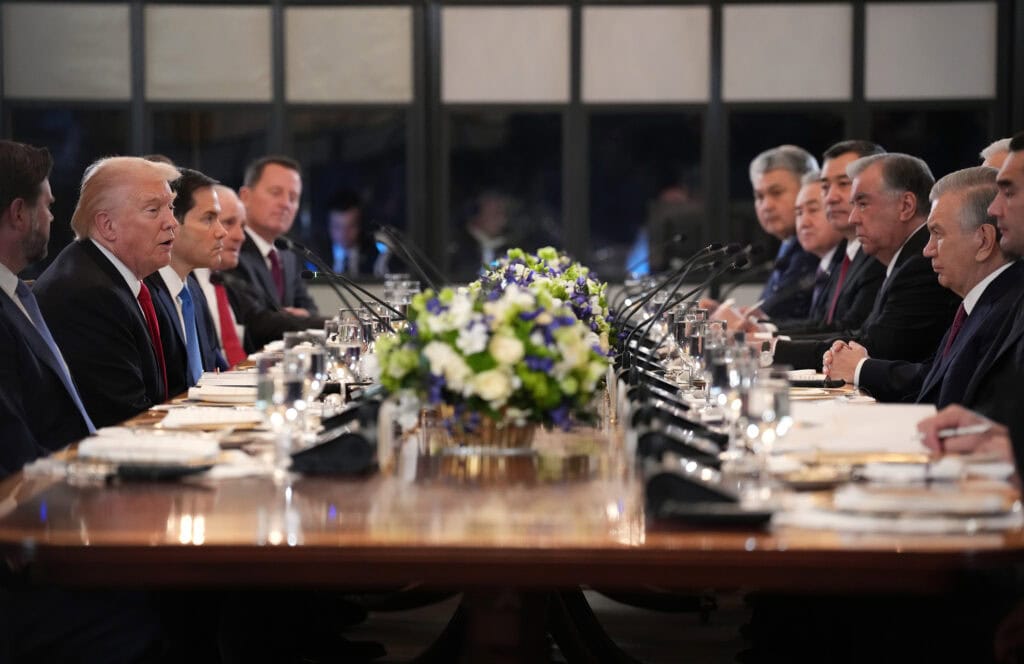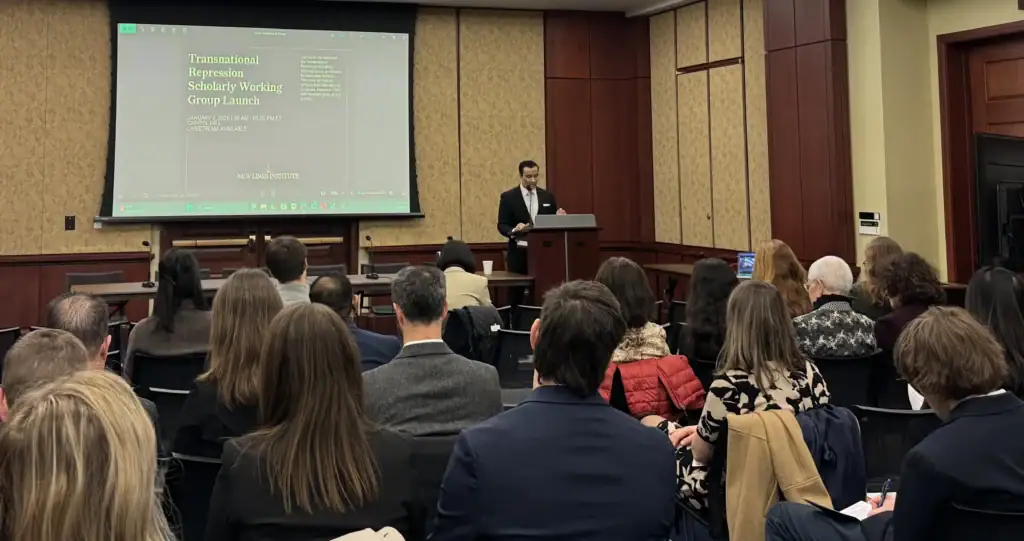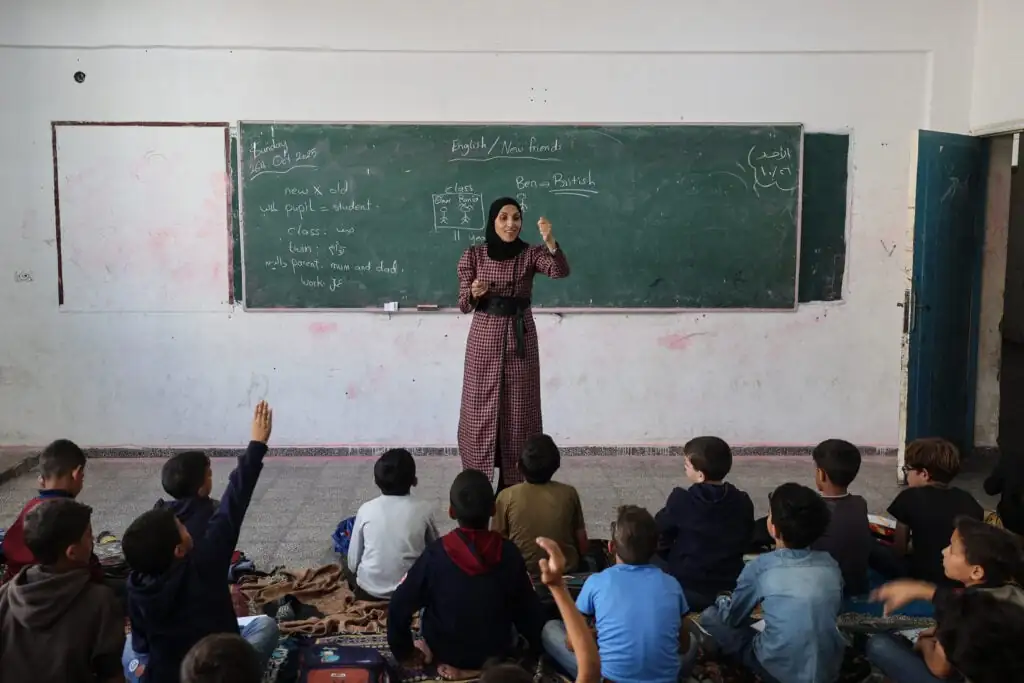
2024 U.S. Human Rights Report: Omissions, Exclusions, and Obfuscations
The U.S. State Department issued its annual Country Reports on Human Rights Practices (also known as the Human Rights Report, or HRR) on Aug. 12. This edition came months behind schedule, with structural changes and significant gaps from its previous iterations. The report for 2024 evaluates countries’ human rights practices on macro and micro levels, omits previously included established mass atrocity warning indicators, and leaves significant data marked as “under further review.”
The HRR has historically guided U.S. aid allocation, informed congressional and aid agency decisions, and served as a trusted reference for journalists, nongovernmental organizations, and governments worldwide. For years, the HRR has ranked as the most viewed content on the State Department’s website, reflecting its wide reach and significant influence both in the U.S. and abroad. This year’s departure from a longstanding reputation as a credible, well-researched, and nonpartisan resource sends the signal that “America First” under the administration of U.S. President Donald Trump means downplaying allies’ human rights abuses, spotlighting those of enemies, and sacrificing credible reporting for politics. National Public Radio reported that State Department memos outline entire categories of abuses that were removed during the drafting stage of the HRR, suggesting deliberate changes had been made to improve appearances, especially the omission of details from the reports on allies and in war zones.
The Missing Data
This iteration notably excludes reporting on violence against women, systemic racial or ethnic violence, and restrictions on citizens’ freedom of expression (a right strongly advocated for by the U.S.), as well as reporting on alleged abuses related to sexual orientation, government corruption, and denial of fair public trials. Other departures from the norm include a preface by the secretary of state that outlines the report’s scope, reaffirms the U.S. commitment to human rights and democracy, and highlights U.S. values in foreign policy. The 2023 report’s preface, for example, detailed new commitments to global democracy investments, online protection for human rights advocates, and advancement of racial and gender equity domestically.
Beyond omitting topics that would typically fall under domestic diversity, equity, and inclusion issues, the most striking changes are in the length of the 2024 reports. NPR’s analysis found that, on average, each country section in the 2024 report is one-third shorter than in previous years. Individual reports for some countries show drastic reductions: El Salvador’s section is 75% shorter and now states there were “no credible reports of significant human rights abuses.” In contrast, the 2023 report for El Salvador, which has cooperated with the administration’s push to deport migrants it deemed criminal, cited poor prison conditions, an issue that is now omitted entirely.
France, Germany, and the U.K. are now described only in general terms, noting “significant human rights issues” such as restrictions on freedom of expression and antisemitism-related crimes or threats. In Canada’s case, the 2023 report detailed extensive gender-based violence, including domestic abuse, as well as violence targeting racial, religious, and LGBTQI+ communities. In 2024, this was replaced with the much narrower claim of “credible reports of serious restrictions on freedom of expression and media freedom, including unjustified arrests or prosecutions of journalists and activists.”
The 2024 report on Israel is 93.5% shorter than 2023’s, acknowledging only “at least” 43 Palestinian deaths (far below documented figures) while focusing predominantly on Hamas and Hezbollah. The report omits Israeli authorities’ large-scale forced relocation of Palestinians in Gaza; weaponization of hunger; systematic denial of water, power, medical supplies, and essential civilian goods; and destruction of critical infrastructure.
The report identifies worsening human rights conditions in Haiti and Venezuela, with credible reports of serious abuses including arbitrary detention, torture, extrajudicial killings, and enforced disappearances in these nations plus similar cases in Honduras, Nepal, Nicaragua, and Afghanistan. This creates a contradiction in which the Trump administration acknowledges these countries’ dangers while simultaneously ending temporary protected status for nationals from these same countries who are in the United States.
What Does it Mean for U.S. Priorities?
Appendix A of the report reveals some of the reasoning behind the changes:
“In March 2025, the report was adjusted. This year’s reports were streamlined for better utility and accessibility in the field and by partners, and to be more responsive to the underlying legislative mandate and aligned to the administration’s executive orders.
“We minimize the amount of statistical data in the report. In the age of the internet, the underlying data are generally available.”
The recent changes appear closely linked to the Trump administration’s politicization of the reports: removing DEI-related content, omitting references to poor El Salvadorian prison conditions, and highlighting countries such as South Africa for “significantly worsening” human rights conditions in the wake of political clashes with the administration. These reports, once vital and credible, have been stripped down and repurposed as a political instrument.
The shift is especially striking given that the first Trump administration signed into law the groundbreaking Elie Wiesel Genocide and Atrocities Prevention Act of 2018, which passed with overwhelming bipartisan support and formally embedded atrocity prevention into U.S. foreign policy. Under the act, the State Department is required to train foreign service officers posted to countries experiencing (or at risk of) mass atrocities, including genocide and war crimes, to identify early warning signs, track escalation patterns, and implement prevention and response strategies. It also mandates an annual presidential report to Congress on U.S. atrocity prevention efforts. This year’s report, which was due July 15, has yet to be submitted.
Combined with the dismantling of USAID and the State Department’s Bureau of Democracy, Human Rights, and Labor, and the reduction of federal funding for NGOs engaged in atrocity prevention and related work, these changes signal a sharp break from previous priorities and the emergence of new ones.
As Trump assumed the presidency, he rolled back numerous DEI initiatives and Biden-era policies under the banner of “America First,” asserting that his administration was “serving America, not ideological agendas.” Yet, in practice, he frequently made unilateral decisions driven by political motives that contradicted this claim. Ultimately, despite being branded “America First,” Trump policies often operate as “America and allies first,” rewarding compliant partners like El Salvador with favorable human rights reports while criticizing uncooperative states.
The views expressed in this article are those of the author and not an official policy or position of New Lines Institute.




